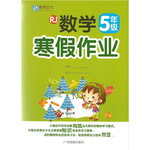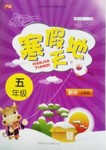题目内容
8. No one has _____ been able to trace the author of the poem.
A. still B. yet C. already D. just
B. yet
解析:
yet 常用于现在完成时的否定句中, 意为“尚, 还”。

练习册系列答案
 黎明文化寒假作业系列答案
黎明文化寒假作业系列答案 寒假天地重庆出版社系列答案
寒假天地重庆出版社系列答案
相关题目
题目内容
8. No one has _____ been able to trace the author of the poem.
A. still B. yet C. already D. just
B. yet
yet 常用于现在完成时的否定句中, 意为“尚, 还”。

 黎明文化寒假作业系列答案
黎明文化寒假作业系列答案 寒假天地重庆出版社系列答案
寒假天地重庆出版社系列答案